Today, we celebrate the birthday of Tolkien, born 3.1.1892, not only one of the most beloved English writers of the last decades, but also a still largely underestimated key figure in the conservative renewal of the West. The complexity and richness of Tolkien’s work is immense, and when it comes to understanding not only the inner working of Tolkien’s creative process or the spiritual and emotional forces that animated his literary production, but also the numerous allusions to the cultural history of the West, so much has already been said, that it is not easy to add anything substantial. However, today’s objective is much more reduced, as I would rather like to voice some fears – and hopes.
No doubt: whoever reads Tolkien’s work with at least an ounce of sympathy for the traditions and for the history that made the greatness of the West cannot escape deep fascination, as Tolkien has managed to shape a “subcreation” that is the mythopoetical quintessence of everything that the defines our civilisation – for the best as for the worst. Indeed, Tolkien’s oeuvre is much more than just a medley, a pastiche of diverse narrative strands; it is a unique recasting that convincingly makes all later traditions look and even feel like much later variations of the true, “original” stories as contained in his own legendarium. Thus, Tolkien has succeeded in creating the West all over again – but not by mixing and matching disjointed bits and pieces as so many authors of “fantasy”, but by starting from the beginning and developing a coherent alternative prehistory, virtually applying the rules of reconstructive philology to the domain of myth and poetry. Hence, in retrospective, Tolkien transformed the initial aim of “creating a mythology for England” into the much larger aim of devising a world that would not only contain the roots of all later cultural traditions of the West, but also prefigure major strands of Christian salvation history.
However, Tolkien’s legacy – an inspiration and a hope for so many generations of Europeans – is in danger: on the one hand because of the gradually declining literacy of young people increasingly overstrained by texts longer than a couple of pages or written in “high style” and thus devoid of the capacity of mastering more challenging literary works; on the other hand from precisely those actors pretending to “defend” Tolkien’s heritage. Obviously, one thinks first and foremost of the catastrophe constituted by the new Amazon show “Rings of Power” which ridicules and distorts virtually everything dear to Tolkien: Strong independent women instead of heroines struggling to define their own feminity; ethnic diversity in a universe explicitly designed to fit Northwest Europe; impersonal characters entirely different from the complex, more-than-life-size heroes of the Silmarillion; cheap hit-and-run narratives instead of the typically Tolkienian synthesis between Nordic tragedy and Christian eucatastrophe; and so forth. Already the “Hobbit” constituted a dangerous, even though at least partially loveable endeavour to rewrite and somehow “complete” Tolkien by adapting his work to the narrative canon of modern Hollywood – but in comparison with Peter Jackson’s second trilogy, “Rings of Power” is a mere abomination.
Of course, the problem does not merely rely in the abusive deformation of the Legendarium as such, but rather in its ultimate impact on the modern youth, most of which will henceforth solely associate Tolkien with “the movies” and either be unwilling or incapable of reading his books from end to end – or which will be so deterred by their latest cinematographic adaptation that they will not even want to open his books. Hence (with the obvious exception of Jackson’s “Lord of the Rings”), the new movie adaptations will probably do more harm than good to Tolkien. As for most modern Tolkien “scholarship”, much of which seems to settle on increasingly woke questions such as the non-binary relation of Sam and Frodo, Tolkien’s implicit xenophobia or the need for a “feminist” reading of the Silmarillion, let us better pass it over in silence…
But of course, as always, there is some hope. The mainstream may succeed in provisionally pirate Tolkien’s work and drive those reading it as it has been written and intended underground with the usual defamations; however, as is the case with all great works of art, Tolkien will survive and be rediscovered as he deserves it – sooner or later; and if not in Europe, then elsewhere, as seems to be already the case with so many other Western creations. And in the meanwhile, the inspiration he will provide to the happy few “true” Tolkienians will be even the greater, as his work is by no means in opposition to the situation experienced by the last Westerners in the 21st century, but rather prefigures it – and also describes all the recipes to face our destiny with honour and duty: Courage, loyalty, friendship, sincerity, and the absolute conviction that this world is not the end, and that the fight for our ideals is worth the highest sacrifices…
Read also
"Don't just criticise, create!": Interview with Victor Aubert, Director of Academia Christiana
This is the fourth episode of our new interview series entitled "Don't just criticise, create! David Engels talks to European artists, philosophers, priests, intellectuals, activists and craftsmen who have decided not only to lament the "decline of the West", but also to try to help reverse it. They did so by creating something new - and perhaps also something beautiful, true and good.
David Engels
Six Years in Poland
Your Excellencies, Dear Ladies and Gentlemen, First of all, I would like to express my warmest thanks to
David Engels
The Essence of Things - Hesperialism
In the fifth episode of "The Essence of Things", we discuss the topic of philosophy of history and the concept of hesperialism.



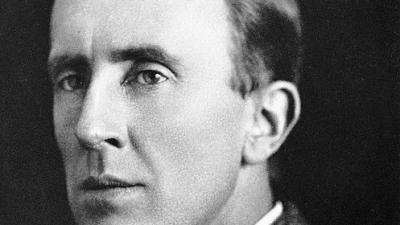

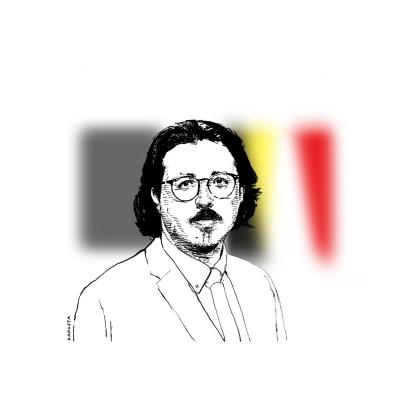


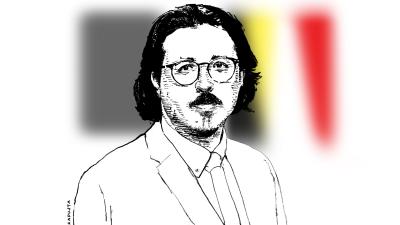

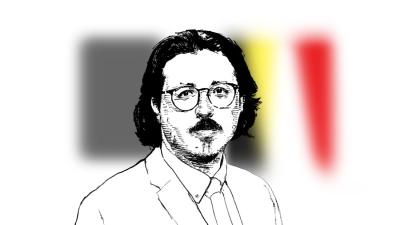

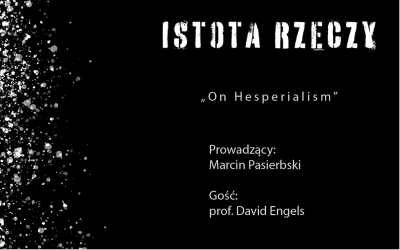

Comments (0)